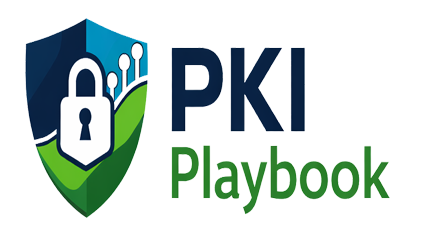In today’s hyperconnected digital world, every API call, microservice, and virtual machine depends on secure identity verification. As enterprises move deeper into cloud ecosystems, managing thousands of certificates manually becomes nearly impossible. That’s why cloud-native PKI orchestration has become a cornerstone for maintaining scalable, automated, and resilient digital trust.

By leveraging the power of Public Key Infrastructure (PKI) within a cloud-native framework, organizations can automate certificate lifecycle management, strengthen compliance, and respond dynamically to evolving security threats. Below are eight powerful solutions that illustrate how cloud-native PKI orchestration can solve modern trust and identity challenges.
1. Automated Certificate Lifecycle Management
Manual certificate handling often leads to expired credentials, service outages, and compliance failures. Cloud-native PKI orchestration eliminates these risks by automating every stage — issuance, renewal, revocation, and replacement.
With Public Key Infrastructure (PKI) automation tools embedded in cloud pipelines, certificates are generated and deployed instantly when a new instance or container launches. This ensures that no service runs with an outdated or insecure certificate, keeping uptime consistent and trust unbroken.
2. Dynamic Scaling with Microservices Integration
Modern applications built on Kubernetes or Docker often deploy and destroy containers dynamically. Traditional PKI systems struggle to handle this level of agility.

Through cloud-native PKI orchestration, trust policies and certificates scale automatically alongside microservices. The orchestration engine integrates with orchestrators like Kubernetes, ensuring that every microservice is issued a valid digital identity through Public Key Infrastructure (PKI) — even if it only lives for minutes. This dynamic approach prevents trust gaps in fast-changing environments.
3. Unified Policy Enforcement Across Multi-Clouds
Enterprises often rely on multiple cloud providers for flexibility and redundancy. However, managing consistent certificate policies across AWS, Azure, and Google Cloud can be a nightmare.
Cloud-native PKI orchestration solves this by enforcing unified policies across all environments. Administrators can define rules once — such as key length, certificate lifespan, or encryption algorithm — and the system applies them consistently through Public Key Infrastructure (PKI) integrations. This ensures every workload, regardless of platform, meets the same compliance and security standards.
4. Zero-Trust Alignment through Identity Automation
In zero-trust architectures, nothing is trusted by default — every user, device, and process must verify its identity continuously. Cloud-native PKI orchestration becomes the invisible backbone of this approach.
By issuing and validating certificates automatically via Public Key Infrastructure (PKI), systems can authenticate every connection in real time. Whether it’s a user logging into a SaaS app or an API calling another microservice, PKI-based identity automation ensures that trust decisions are dynamic, not static.
5. Seamless Integration with DevSecOps Pipelines
Security should never slow down development. With cloud-native PKI orchestration, certificate management becomes an integral part of the DevSecOps lifecycle.
As developers push code, the orchestration system automatically provisions new certificates, validates them using Public Key Infrastructure (PKI), and injects them into build pipelines. This ensures secure coding practices without manual configuration, enabling faster and safer software delivery.
6. Real-Time Visibility and Analytics
Without visibility, expired or misconfigured certificates can go unnoticed — until they cause downtime or breaches. Cloud-native PKI orchestration provides centralized dashboards and real-time analytics, allowing teams to monitor every certificate’s status, health, and expiration timeline.
These insights, powered by Public Key Infrastructure (PKI) telemetry, help security teams identify anomalies quickly — such as untrusted issuers or duplicate certificates — and take corrective actions before they turn into security incidents.
7. Automated Key Rotation and Secret Management
Static keys and long-lived secrets are prime targets for attackers. Cloud-native PKI orchestration integrates with secret managers (like HashiCorp Vault or AWS Secrets Manager) to automate key rotation and storage.
This system ensures that every private key generated by Public Key Infrastructure (PKI) is stored securely, rotated frequently, and never exposed in plaintext. Automated key rotation not only boosts compliance but also drastically reduces the attack surface in distributed cloud environments.
8. Compliance and Audit Readiness by Design
Regulatory frameworks like GDPR, SOC 2, and HIPAA demand rigorous encryption and identity controls. Cloud-native PKI orchestration simplifies compliance by automating reporting, certificate tracking, and audit trails.
Because all processes run through Public Key Infrastructure (PKI) with policy enforcement, organizations can produce verifiable logs for every certificate issuance or revocation. This “compliance by design” model eliminates manual documentation and keeps audits smooth, transparent, and error-free.
The shift toward cloud-native PKI orchestration marks a turning point in digital security strategy. Instead of relying on manual, reactive certificate management, organizations can now build an automated, intelligent, and adaptive trust ecosystem.
By fully embracing Public Key Infrastructure (PKI) within the cloud-native paradigm, businesses gain not only agility and scalability but also continuous protection against evolving cyber threats. In the end, orchestrated trust isn’t just a convenience — it’s the foundation of secure innovation in the modern cloud era.










